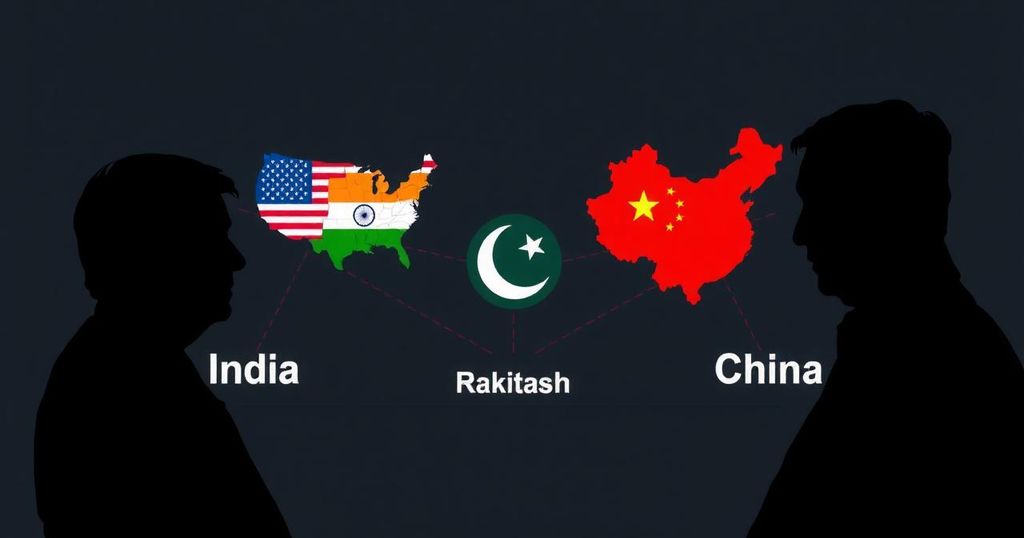Rahul Gandhi Advocates for Unified Foreign Policy While Criticizing China’s Actions
Summary
During his U.S. visit, Rahul Gandhi articulated support for the Indian government’s policies towards the U.S. and concerns over Pakistan and Bangladesh, while sharply criticizing the government’s approach to China, highlighting territorial issues in Ladakh.
Rahul Gandhi, a prominent Congress leader, expressed alignment with the Indian government’s policies towards the United States, Pakistan, and Bangladesh, while critiquing its stance on China during his visit to Washington. He stated that cross-border terrorism has obstructed the India-Pakistan relationship, underscoring that there would be continuous issues as long as Pakistan engages in terrorism against India. In discussing Bangladesh, Gandhi acknowledged mutual concerns regarding extremism and emphasized the necessity for the Bangladeshi government to address these issues promptly. Conversely, Gandhi was notably critical of Prime Minister Narendra Modi’s handling of relations with China, pointing out that Chinese troops currently occupy 4,000 square kilometers of Indian territory in Ladakh, which he described as a significant failure, questioning how America would respond if a neighboring country occupied such a large area of its land. During his time in Washington, Gandhi met with various lawmakers, including controversial Congresswoman Ilhan Omar, which sparked criticism from the ruling Bharatiya Janata Party (BJP). The BJP condemned his meeting with Omar, labeling her as an anti-India figure. Despite this, Gandhi conveyed that he does not perceive a major divergence between his party’s stance and that of the BJP regarding the U.S., asserting that the India-U.S. relationship is crucial and suggesting that both U.S. political parties would continue strengthening these ties. Moreover, he remarked on the importance of promoting India’s democratic values on a global scale, suggesting that India’s democracy is a vital asset currently under threat. Gandhi firmly stated, “Pakistan’s instigation of terrorism in our country is holding the two countries back,” indicating that without cessation of terrorist activities, relations between India and Pakistan would remain strained. He further expressed disapproval of violence in Gaza, recognizing the need for both accountability and compassion in conflict situations. Ultimately, Gandhi’s remarks reflect a blend of agreement and discontent regarding Indian foreign policy, particularly emphasizing the geopolitical challenges posed by neighboring countries.
The topic revolves around Rahul Gandhi’s statements during his visit to the United States, where he addressed relationships between India and several key nations, including the U.S., Pakistan, Bangladesh, and China. His perspectives provide insight into current geopolitical dynamics and the challenges facing India, particularly concerning terrorism, extremism, and territorial disputes.
In conclusion, Rahul Gandhi’s visit to Washington highlighted both consensus and contention in India’s foreign policy. While acknowledging the significance of U.S.-India relations and the impact of terrorism on India-Pakistan ties, Gandhi’s pointed criticism of the Modi administration’s handling of China raises critical questions about national security and territorial integrity. His statements contribute to the ongoing discourse on India’s diplomatic strategies and the importance of fostering democracy globally.
Original Source: www.hindustantimes.com








Post Comment